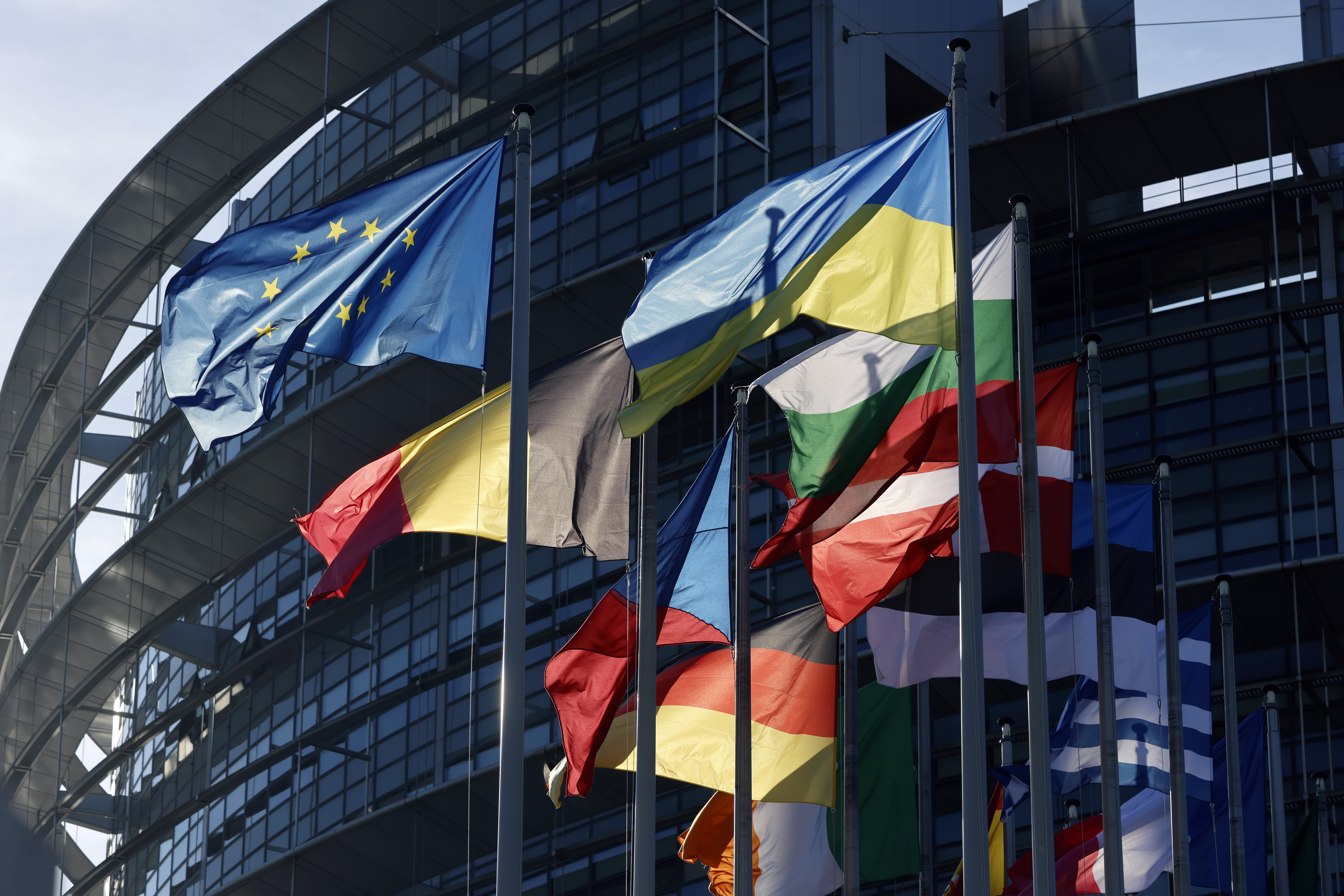
The European Parliament on Wednesday adopted a resolution declaring Russia a state “sponsor of terrorism” over its war in Ukraine.
“The deliberate attacks and atrocities committed by Russian forces and their proxies against civilians in Ukraine, the destruction of civilian infrastructure and other serious violations of international and humanitarian law amount to acts of terror and constitute war crimes,” the European Parliament said.
In total, 494 members of the European Parliament (MEPS) voted in favour of the resolution, 58 were against and 44 abstained.
The largely symbolic move is unlikely to make an impact, because the European Union – unlike the United States – does not have the legal framework to designate countries. Across the Atlantic, on the US list are North Korea, Syria, Cuba and Iran.
The EU established its terror list in 2001, following the September 11 attacks in New York.
It includes people, groups and entities and is reviewed at least every six months.
ISIL (ISIS) and al-Qaeda armed groups are among those currently on the list.
Which members voted against the resolution?
Russia is the first country to be declared a state sponsor of terrorism by the European Parliament.
However, members were not unanimous in their voting, with a larger proportion of the right-wing bloc of the Parliament against the association of Russia with terrorism.
Twenty-six members of the far-right political group Identity and Democracy voted against designating Russia as a sponsor of terrorism.
Here is a breakdown of votes by country, home country party, and member:
These French politicians who voted against the resolution are all members of the National Rally or Rassemblement National, which is led by Marine Le Pen.
- Mathilde Androuët
- Jordan Bardella
- Aurélia Beigneux
- Dominique Bilde
- Annika Bruna
- Patricia Chagnon
- Marie Dauchy
- Jean-Paul Garraud
- Catherine Griset
- Jean-François Jalkh
- France Jamet
- Virginie Joron
- Jean-Lin Lacapelle
- Gilles Lebreton
- Thierry Mariani
- Philippe Olivier
- André Rougé
The following German politicians who voted against the resolution are all members of the far-right Alternative for Germany or Alternative für Deutschland party (AfD).
- Christine Anderson
- Gunnar Beck
- Nicolaus Fest
- Maximilian Krah
- Joachim Kuhs
- Guido Reil
- Bernhard Zimniok
Czech MEPs, who are members of the populist Freedom and Direct Democracy party, or Svoboda a přímá demokracie:
- Hynek Blaško
- Ivan David
One member of the centre-right European Conservatives and Reformist Group voted against the resolution:
- Emmanouil Fragkos, whose party in Greece is Greek Solution, or Elliniki Lusi-Greek Solution
Twelve members from the centre-left Progressive Alliance of the Socialists and Democrats voted against the resolution.
From Bulgaria – all with the centre-left Bulgarian Socialist Party:
- Ivo Hristov
- Tsvetelina Penkova
- Sergei Stanishev
- Petar Vitanov
- Elena Yoncheva
From Germany – all with the Social Democratic Party of Germany or Sozialdemokratische Partei Deutschlands (SPD), which is the party of Chancellor Olaf Scholz:
- Joachim Schuster
- Dietmar Köster
From Italy – these three politicians belong to Partito Democratico or the Democratic Party:
- Pietro Bartolo
- Andrea Cozzolino
- Massimiliano Smeriglio
From Slovakia:
- Monika Beňová (SMER-Sociálna demokracia, or Direction – Slovak Social Democracy)
- Robert Hajšel (Independent)
Ten members of the Left group in the European Parliament voted against the resolution:
From Belgium:
- Marc Botenga (Parti du Travail de Belgique or Workers’ Party of Belgium – which is a Marxist party)
From Cyprus:
- Niyazi Kizilyürek (Progressive Party of Working People – Left – New Forces)
From Czech Republic:
- Kateřina Konečná (Komunistická strana Čech a Moravy, or Communist Party of Bohemia and Moravia)
From Germany (DIE LINKE. party, or The Left party):
- Özlem Demirel
- Martin Schirdewan
From Portugal (Partido Comunista Português, or Portuguese Communist Party – a Marxist-Leninist group)
- Sandra Pereira
- João Pimenta Lopes
From Ireland (Independents 4 Change):
- Clare Daly
- Mick Wallace
From Spain:
- Miguel Urbán Crespo (Anticapitalistas)
Nine MEPs who are not affiliated with any political grouping also voted against the resolution:
- Nicolas Bay (France – Reconquête!, or Reconquest – a nationalist party)
- Francesca Donato (Italy – now an independent but formerly with the far-right Lega Nord, or Northern league headed by Matteo Salvini)
- Marcel De Graaff (Netherlands – Forum voor Democratie, or Forum for Democracy, a right-wing populist party)
- Lefteris Nikolaou-Alavanos (Greece – Communist Party of Greece)
- Kostas Papadakis (Greece – Communist Party of Greece)
- Miroslav Radačovský (Slovakia – Slovak PATRIOT, which is a right-wing party)
- Milan Uhrík (Slovakia – Hnutie Republika or Republic – a far-right party)
- Martin Sonneborn (Germany – Die Partei or The Party, which is a satirical party)
- Tatjana Ždanoka (Latvia – Latvijas Krievu savienība or the Latvian Russian Union, which is backed by ethnic Russians and other Russian-speaking minorities)







